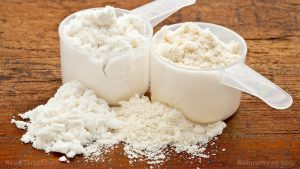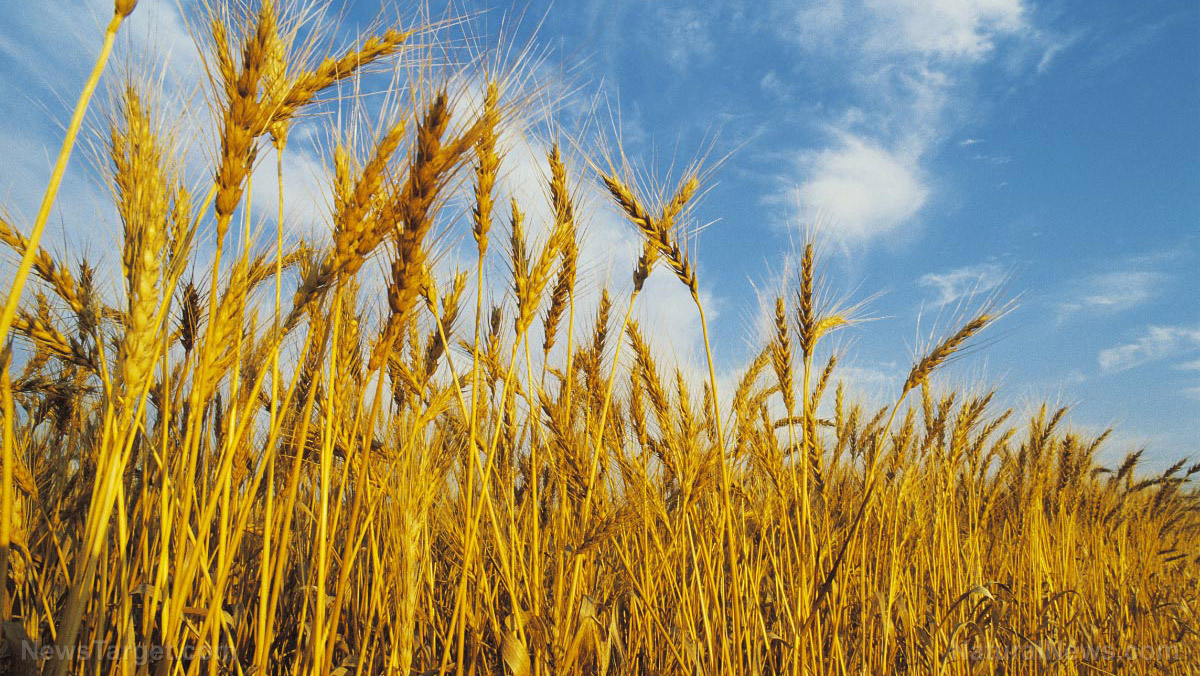Casein — toxicity, side effects, diseases and environmental impacts
11/18/2017 / By Rita Winters

Casein, from the Latin term caseus, is the name of a slow-digesting protein found in dairy items like milk. Making up 85 percent of dairy, it is not to be confused with milk protein, or whey protein. It provides some calories that serve as energy sources. Casein does not go well with zinc, magnesium, and iron because it competes with calcium for intestinal absorption.
This protein has different names on labels: casein, caseinates, calcium caseinate, potassium casinate, and sodium caseinate.
List of known side effects
Casein is known to cause kidney damage. People with healthy kidneys have the green light to consume casein, but individuals with existing kidney disorders or diseases will be aggravated by the protein. Casein also triggers allergies: at times, the body identifies casein as a harmful body and releases histamine to get rid of it. Both whey and casein proteins found in milk can trigger an allergic reaction. However, this is not to be confused with lactose intolerance. Some symptoms of allergic reactions to casein are hives, rashes, wheezing, severe pain, food malabsorption, vomiting, and breathing problems.
It may also lower your immune system when the respiratory system is affected. The body may be more susceptible to fever, asthma, bronchitis, sinusitis, runny noses, and even ear infections.
Body systems affected by casein
“The China Study” explains a link between the occurrence of cancer and ingesting animal protein. Casein promotes cancer in all stages of development.
Due to casein’s viscosity, it is often used as an ingredient in glue, and can cause mucus formation in humans. Therefore, casein may target the human respiratory system.
Items that can contain casein
- Milk from mammals (e.g. cow’s milk)
- Low-fat milk
- Yogurt
- Cheese
- Ice cream
- Veggie cheese, non-dairy yogurts, non-dairy, non-dairy creamers
- Margarine
- Tuna
- Coffee creamer
- Semi-sweet chocolate
- Cereal bars
- Baked goods
- Non-food items such as paint, adhesives, glues, fabrics, textiles, and plastics
How to avoid casein
Casein is a very sneaky ingredient because it can be incorporated into a lot of food and even non-food items. To avoid this, it is necessary to read food labels and be familiar with its different names, as mentioned above. Lactic acid, lactose, and artificial flavorings are some cover-ups for casein. Dairy-free products may still contain casein.
Where to learn more
- Soy cheese products deceive consumers, violate vegans
- Choosing a Protein Powder That Is Good For You
- Six Signs of Food Sensitivities
- Protein Powders: The Good, The Bad and The Toxic
- Whey or Casein – the Eternal Protein Dilemma
Summary
While casein is safe for people with healthy kidneys, it might cause more problems for individuals who have damaged or problematic kidneys. Casein can cause severe allergic reactions.
Sources include:
Tagged Under: casein





















